The climactic central scene of Benjamin Britten’s Billy Budd ends unexpectedly. The naval court has reached a verdict of death, and Captain Vere must depart to tell Billy his fate. Voices fall silent, the stage empties, and for two whole minutes the unseen drama is distilled into just 34 chords. And not sprawling elbowfuls of notes either, but plain old triads — the child’s building blocks of harmony.
It’s wilfully, maddeningly ambiguous and utterly inspired. It’s also a touchstone for any performance — the moment the opera reveals itself either as a parable, groping gradually but surely towards redemption, or a darker tale of the indiscriminate cruelty of fate.
Deborah Warner’s Billy Budd cruises into Covent Garden from Madrid and most recently Rome, its sails billowing full with praise and awards. You can see why. Michael Levine’s designs, lovingly lit by Jean Kalman, are airy and architectural — less a ship than the idea of a ship. An endlessly evolving space articulated by swaying ropes and moving walkways, its unfixedness offers a telling contrast to the rigid hierarchy and stratification of life on the ‘floating prison’ of the Indomitable.
Warner, like Britten, is less interested in the sweaty, salty realities of 18th-century seafaring than in the social and psychological landscape of this ‘tiny floating fragment of earth’. She crews it with care in a fine ensemble cast, many of whom have been with the production since its 2016 première.
But oddly, given this long gestation, there’s little sense of community. Backlit scenes reduce individuals to silhouettes, a faceless mass where they should be vivid character sketches. A non-specifically 20th-century updating confuses matters further, blunting the story’s explicitly Napoleonic situation (which comes ready-charged with revolution and recent mutinies) without offering much in return.
Which brings us back to those chords. Like Melville’s original novella, Britten, Forster and Crozier’s opera is a study in ambiguity — suggesting much but stating nothing, dissolving homosexuality, Christianity and moral philosophy into a shadow play of gesture. But there’s a fine line between charged possibility and an inert refusal to commit. Warner’s elegant, light-touch production seems so determined to keep its options open that it risks abdicating interpretative responsibility altogether.
Only in this one moment — the offstage interview — does she risk a statement, restoring both figures to the stage for a dumbshow. It ends in a single touch from Billy to Vere, a gesture of benediction that turns the condemned sailor instantly from man to martyr. Accompanied by stuttering chords from Ivor Bolton’s rather ragged orchestra, it’s a declaration that lacks conviction, coherence, and one ultimately cast adrift on Britten’s ‘infinite sea’.
But individual performers make their mark. Jacques Imbrailo (Billy), Toby Spence (Vere) and Brindley Sherratt (Claggart) are an unimproveable central triangle — Imbrailo’s impetuous innocent caught between Spence’s remote, professorial Vere and Sherratt’s silken, self-loathing villainy. The word ‘love’ curdles with sickening sweetness in Sherratt’s mouth, while Spence’s youth and unyielding purity reframes the power dynamic between captain and crew. Supporting roles are richly cast, with Sam Furness’s pitiful Novice and the gruff warmth of Clive Bayley’s grizzled Dansker standing out.
If Warner’s Budd is a fascinating failure, the same cannot be said of English National Opera’s Man of La Mancha. The company’s annual collaboration with commercial producers Grade Linnit has generally exceeded expectations, ranging from a superb Sweeney Todd to a perfectly serviceable Carousel. But Mitch Leigh and Joe Darion’s Don Quixote-inspired musical is a weaker show, old-fashioned and awkward even at its Tony Award-winning height, and in Kelsey Grammer it lacks the star power to propel it into anything approximating life.
La Mancha is a one-song show (one-and-a-half if you count the sweet, slight ballad ‘Dulcinea’). If you can’t deliver ‘The Impossible Dream’ with the urgent intensity of an X-Factor finalist you’ve got nothing. Grammer, for all his personable presence, can’t sing. And unlike Camelot’s King Arthur or My Fair Lady’s Henry Higgins (vehicles for the not-really-singing talents of Richard Harris and Rex Harrison), the role of Cervantes/Quixote really does need to supply the musical thrills so lacking elsewhere in Leigh’s anonymously Spanish score.
Director Lonny Price updates the original Spanish Inquisition setting to a modern-day squat, peopled with a motley group of bafflingly mid-Atlantic miscreants. If this is an attempt at edginess and engaging with fashionable issues of fascism and free speech, then it fails to land, as does the wildly misjudged assault of Danielle de Niese’s energetic but unfocused Aldonza/Dulcinea.
Where previous ENO musicals have made a virtue of its ‘concert-staging’ simplicity, supplementing the lack of technical toys with strong ensemble performances, La Mancha just feels budget. Orchestra, chorus and dancers are left twiddling their thumbs for hours on end, leaving you wondering at such pointless profligacy. A comic cameo from Nicholas Lyndhurst’s Governor/Innkeeper and Peter Polycarpou’s Sancho Panza are the only redeeming features of a production whose ‘Impossible Dream’ remains, well, exactly that.
Got something to add? Join the discussion and comment below.
Get 10 issues for just $10
Subscribe to The Spectator Australia today for the next 10 magazine issues, plus full online access, for just $10.
You might disagree with half of it, but you’ll enjoy reading all of it. Try your first month for free, then just $2 a week for the remainder of your first year.

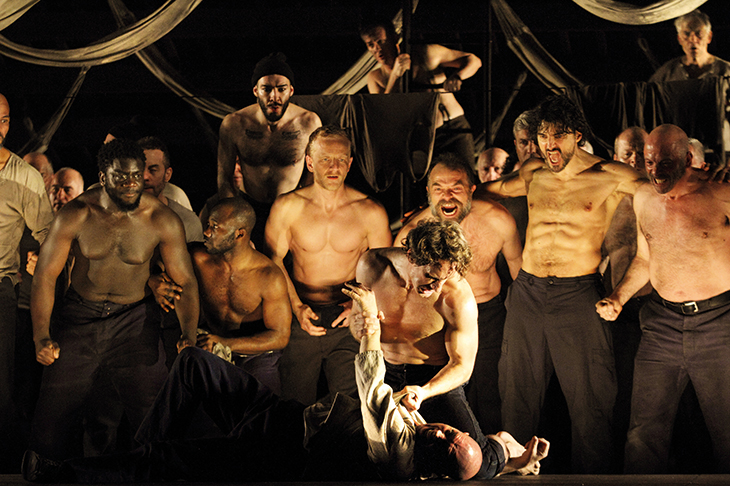
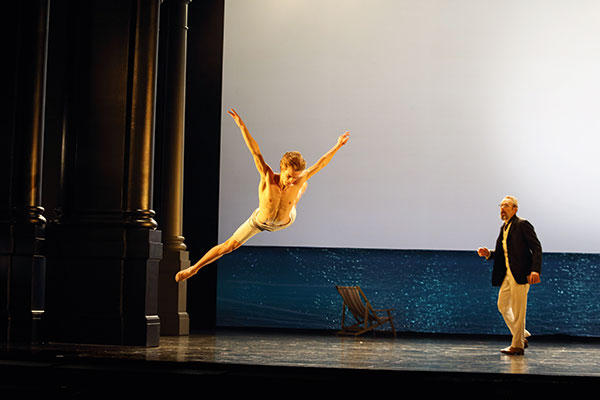

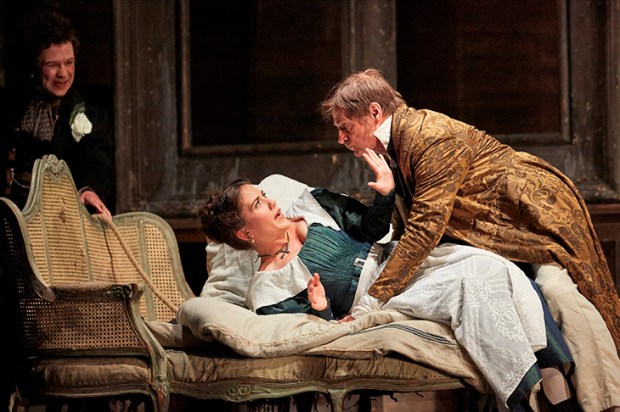
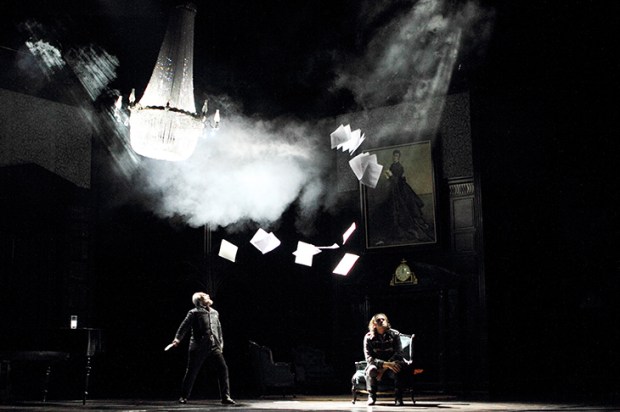
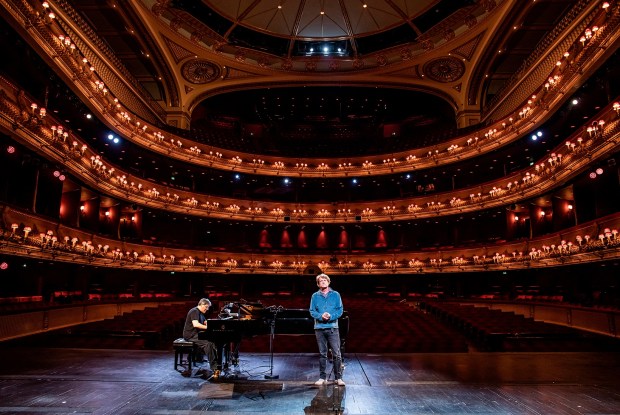
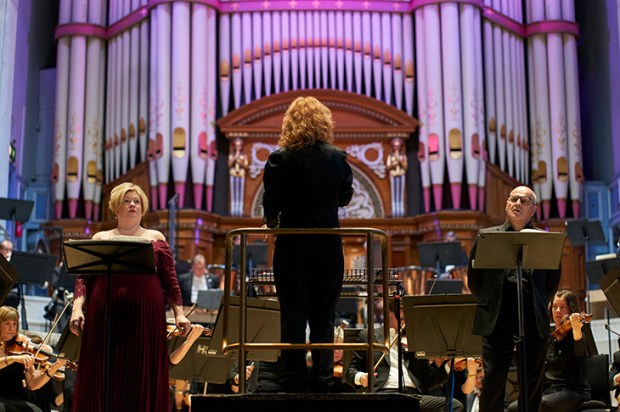






Comments
Don't miss out
Join the conversation with other Spectator Australia readers. Subscribe to leave a comment.
SUBSCRIBEAlready a subscriber? Log in